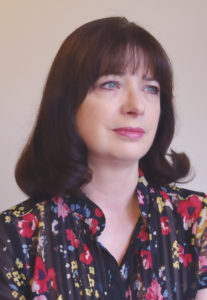– THE ANNUAL CHARLES DE CHASSIRON MEMORIAL LECTURE –
Is Italian truly the most beautiful language in the world? Once the language of philosophy and poetry, up to the point that John Milton could sing “questa è lingua di cui si vanta Amore” (“this is the language of which Love makes his boast”), in the late twentieth century Italian was certainly the language of football and fashion; but is this still the case? Cuisine and mafia are undoubtedly the leading fields of Italian primacy worldwide, to the extent that English has easily incorporated their vocabulary, from pasta and pizza to pistol and vendetta, but is there anything more? Stefano Jossa’s latest book argues that the beauty of Italian is still there, but is far more complicated than expected.
Stefano Jossa is Reader in Italian at Royal Holloway College, University of London. He specialises in the Italian Renaissance and the Italian national identity expressed through literature. He is the author of L’Italia Letteraria (Il Mulino, 2006), Ariosto (il Mulino, 2009) and Un Paese Senza Eroi: L’Italia da Jacopo Ortis a Montalbano (Laterza, 2013). He has also edited and co-authored the following books: with Claudia Boscolo, Scritture di Resistenza. Sguardi Politici dalla Narrativa Italiana Contemporanea (Carocci, 2014); with Giuliana Pieri, Chivalry, Academy, and Cultural Dialogues: The Italian Contribution to European Modernity (Legenda, 2016); and, with Jane E. Everson e Andrew Hiscock, Ariosto, the Orlando Furioso and English Culture (Oxford, 2019). He held the De Sanctis Chair at the Polytechnic (ETH) of Zurich and was Visiting Professor at the University of Parma and Roma Tre. He is also a contributor to the Italian daily newspapers il Manifesto and la Repubblica. His most recent book is La Più Bella del Mondo: Perché Amare la Lingua Italiana (Einaudi, 2018).
The book “La più Bella del Mondo” (Italian Language) is available at the Italian Bookshop HERE or on Amazon.
If you wish to attend this event, please register by clicking the “book now” button. You will be redirected to our Zoom registration page. After registering, you will receive a confirmation email containing information about joining the webinar.
PLEASE NOTE: we are not making any formal charge for participation in this event. But we strongly encourage all those attending to consider making a donation (we suggest a minimum donation of £5 per event) to enable us to maintain our programme of events and to support our other cultural initiatives. If you are able to make a donation, please use the relevant button on the right or arrange a bank transfer to:
The British Italian Society
Sort code: 20-36-88
Account No: 30197866
Please quote: donation
Gaetano Donizetti was the most successful Italian opera composer of his generation, his music adored by audiences all over Europe, and a massive influence on younger operatic masters from Verdi to Offenbach (even Wagner, who detested his work, reveals its impact in Tristan und Isolde). Yet his life ended in bitter tragedy, and his reputation sank so quickly that it has taken over a century for it to recover. Jonathan Keates, at work on the first major biography of the composer for 60 years, considers the career of a lyric genius, the charm of the man himself and the way this pervades his music.
Jonathan Keates is a prizewinning author and critic, who has written extensively about Italy and music and is a specialist in Italian culture during the Risorgimento era. He is Chairman of the Venice in Peril Fund and was recently made an Ufficiale of Italy ‘s Stella d’Italia order. He is currently at work on a major biography of Gaetano Donizetti, which will be the first such for over 50 years.’
If you wish to attend this event, please register by clicking the “book now” button. You will be redirected to our Zoom registration page. After registering, you will receive a confirmation email containing information about joining the webinar.
PLEASE NOTE: we are not making any formal charge for participation in this event. But we strongly encourage all those attending to consider making a donation (we suggest a minimum donation of £5 per event) to enable us to maintain our programme of events and to support our other cultural initiatives. If you are able to make a donation, please use the relevant button on the right or arrange a bank transfer to:
The British Italian Society
Sort code: 20-36-88
Account No: 30197866
Please quote: donation
Freemasonry, which emerged in Britain in the early eighteenth century, is one of our country’s most successful cultural exports. In every country to which Masonry has been transplanted, the mystique surrounding its secrecy has aroused passions ranging from deadly suspicion to pious loyalty. Yet Italy stands out for the curious and contradictory range of the Brotherhood’s manifestations and influences. Ever since Pope Clement XII Excommunicated the Brotherhood in 1738, the Catholic Church has been Freemasonry’s sworn enemy. In the nineteenth century, a beleaguered Papacy blamed the Masons for all the evils of the modern world. Not coincidentally, Masonic Lodges were among the first places where the fires of Risorgimento patriotism were stoked. After Unification, Lodges became a substitute for political parties, and Liberal Italy had ten or eleven Masonic Prime Ministers. Yet Italy’s mafias also owe their origins to the influence of Freemasonry as a way of organizing. Mussolini’s first act as dictator in 1925 was to crush the Masons – despite the fact that many senior Fascists were Brothers. In post-war Italy, Freemasonry became synonymous with corruption and intrigue, thanks to Licio Gelli’s notorious Propaganda 2 (P2) Lodge. Right now, a trial is going on that aims to prove that the Freemasons exercise a controlling influence within the Calabrian mafia, the ’Ndrangheta. The Grand Orient, Italy’s most venerable Masonic authority, has loudly protested against a witch hunt. Nowhere more than in Italy have the myth and reality of Freemasonry become intertwined.
Prof John Dickie’s lecture draws on material from his recent book, The Craft: How the Freemasons Made the Modern World.
John Dickie is Professor of Italian Studies at University College, London. He is an internationally recognised specialist on many aspects of Italian history and his books have been translated into more than twenty languages. Born in Dundee in 1963, John was brought up in Leicestershire and educated at Loughborough Grammar School. He won a place at Pembroke College, Oxford, graduating in 1986 with a First in Modern Languages. He subsequently gained an MA and a DPhil at Sussex University. Since 1993 he has taught at UCL. John has reached a multi-national television audience with a number of documentaries he has co-written and presented, including the six-part history of Italian food, De Gustibus, which was based on his book Delizia! He presents in both Italian and English. He is often interviewed for the press and media in many different countries. He has also worked as a consultant and researcher for a number of companies, and in 2017 and 2018 he was the host of the Pasta World Championships, sponsored by Barilla. In 2005 the President of the Italian Republic appointed him a Commendatore dell’ Ordine della Stella della Solidarietà Italiana.
He lives in London with his three children.
If you wish to attend this event, please register by clicking the “book now” button. You will be redirected to our Zoom registration page. After registering, you will receive a confirmation email containing information about joining the webinar.
PLEASE NOTE: we are not making any formal charge for participation in this event. But we strongly encourage all those attending to consider making a donation (we suggest a minimum donation of £5 per event) to enable us to maintain our programme of events and to support our other cultural initiatives.

Melanie Hughes’ book War Changes Everything, based on a family archive, is the true story of two remarkable women.
Through their eyes we see the vibrant, often polarised Italian community in London in those turbulent times and its varied and profound impact on the world of ideas and political thought. The two bitterly opposed groups – Fascists, on the one hand, and diverse left-wing factions on the other – were very active in those years, holding meetings and rallies, publishing articles, newspapers and books, raising awareness of the struggle at home and abroad. Some even plotted assassination attempts.
As the 1930s drew to a close, the prospect of war became a terrible reality and the peace-loving majority were caught between two conflicting ideologies, two countries and their cultures. They found their status altered from valued members of society to “enemy aliens” – suddenly they were pariahs in the place where they had lived and worked for generations; they were attacked and vilified by those they had once called friends.
By contrasting the history with the particular – national events with personal recollection – Nadia and Melanie paint a vivid picture of these tumultuous years and those who lived through them.
Melanie Hughes was educated at the Lycee International de Londres, and trained at the Central School of Speech & Drama. She went on to act in theatre, television and films. She began writing for Ken Russell in the TV series Lady Chatterley and worked on further projects for him, the BBC, London Films and Union Pictures. Her first book was Mrs Fisher’s Tulip. Her most recent books are War Changes Everything and its sequel Midnight Legacy.
*** Click here to purchase a Kindle or Paperback edition of War Changes Everything
Nadia Ostacchini was born in London of Italian parentage and graduated from University College London with a BA (Hons) degree in Italian before training at The Academy Drama School. She has worked as a professional actress, voiceover artist and corporate presenter.
Nadia’s stage work has included several major national and international tours and she has featured in various corporate videos and commercials. Nadia was the Narrator in Moving Dreams, an intergenerational heritage multimedia theatre project funded by Arts Council England in association with the ICA – The Fleet (Italian Community Association of Peterborough UK).
Nadia is the Artistic Director and Producer of Tricolore Theatre Company. Un Bambino di Nome Porro, a bilingual English/Italian play for children premiered at The Pleasance Theatre in November 2019. Her forthcoming show will be about Joseph Grimaldi (1778 – 1837), the most popular English entertainer of the Regency era who transformed the role of clown into a star of pantomime.
www.tricolore.org.uk / nadia@tricolore.org.uk
If you wish to attend this event, please register by clicking the “book now” button. You will be redirected to our Zoom registration page. After registering, you will receive a confirmation email containing information about joining the webinar.
PLEASE NOTE: we are not making any formal charge for participation in this event. But we strongly encourage all those attending to consider making a donation (we suggest a minimum donation of £5 per event) to enable us to maintain our programme of events and to support our other cultural initiatives.


Melanie Hughes Nadia Ostacchini
Raffaele Reinerio is a Client Management Executive who has been working for more than 20 years at Armando Testa Group. He started in the London office, spent two years in Bologna, where he became the link between Max Information, an agency part of the Group, and the mother company, before moving in 2015 to Los Angeles, where he participated in the opening and setting up of the American office. In his professional career he’s been very lucky to work with great clients such as Lavazza, Fiat, Alfa Romeo, Jeep, Lines, P&G, Angelini Pharma, Poltronesofà, Baci Perugina, Montenegro, De Longhi and Riva.
If you wish to attend this event, please register by clicking the “book now” button. You will be redirected to our Zoom registration page. After registering, you will receive a confirmation email containing information about joining the webinar.
PLEASE NOTE: we are not making any formal charge for participation in this event. But we strongly encourage all those attending to consider making a donation (we suggest a minimum donation of £5 per event) to enable us to maintain our programme of events and to support our other cultural initiatives.

In photo: Michele Mariani